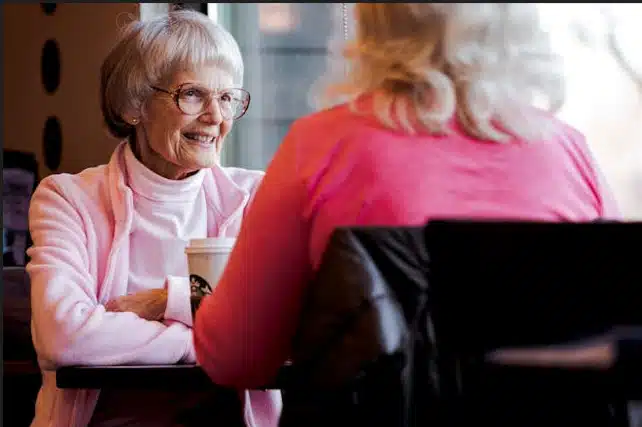Signs an Older Adult is Ready for Home Health Care
Posted in Senior Health Care Tips
As we age, our medical needs, energy levels, and ability to handle tasks on our own may change, but our overall goals usually don’t. Everyone wants the ability to live comfortably and safely in familiar settings and maintain control over how they live their life.
Home health care is an invaluable way to maintain independence and quality of life without uprooting an individual from a familiar setting, but determining when to seek help is a challenge for many families. 
Read on to learn what changes our clients and their loved ones noticed that told them it was time to consider bringing in outside support.
-
Recent household emergencies or falls
Accidents happen. A stumble over a piece of furniture or a dishrag left too close to a burner can happen to anyone. Concern is warranted, however, when it seems there are a series of accidents.
Even if there are no major injuries due to these mishaps, they might be a sign that your loved one is becoming more forgetful, feels overwhelmed by daily tasks, or lacks the energy to see everyday tasks through to completion.
If you see signs of bumps, bruises, or abrasions, or worry that your loved one has multiple stories of “close calls,” trust your gut and consider opening up the conversation about bringing in outside support.
-
Stagnant or worsening medical conditions
Getting better after an injury or illness takes effort, especially as we age. If your loved one appears to be struggling to recover after falling ill or a visit to the hospital, they may benefit from short-term support.
Having the assistance of a caregiver can allow an older adult to “take it easy” for a period of time, avoiding reinjury and hospital readmission, or allowing them to dedicate their time and energy to feeling better.
While some older adults may be able to muddle through daily activities like errands, meal preparation, and cleaning while on the mend, it will take more time and effort, and could contribute to worsening health, either due to living in an unhygienic space or overtaxing themselves as they try to manage their household alone.
-
Changes in weight or mood
We all have ups and downs when it comes to our physical health, but a noticeable change in weight could indicate your loved one will benefit from support.
If you notice a loved one’s clothing no longer fits properly, be they too small or too large, it may indicate that they are having a difficult time making healthy meals for themselves or are struggling to handle tasks like grocery shopping unsupported.
-
Social withdrawal
Not everyone is a “people person” and an individual’s desire to make social visits may naturally change with age, but maintaining some degree of social connection with others is a vital element of maintaining long-term mental health.
Concern may be warranted if your loved one reports spending less time with others, stories about their friends begin to dry up, or you get the sense they have remained in their home with little contact with others.
Social withdrawal can occur for a number of reasons ranging from difficulty hearing or communicating, embarrassment over changing cognitive abilities, difficulty dressing or grooming “for company,” or uncertainty around physical safety when traveling to social events. Fortunately, a home caregiver can provide the support needed to make remaining socially engaged possible.
-
Messy home or apartment
Even living alone, keeping a tidy living space can take quite a bit of time and energy. If you notice your loved one’s home is more cluttered or messier than normal, it may be a sign that they could benefit from some outside support.
In addition to the overall level of cleanliness, consider if you have noticed the following:
- Expired food or old leftovers in the refrigerator or pantry
- Houseplants or pets that appear to be neglected
- Overflowing garbage or recycling bins
- Signs of Bug or Rodent infestations
- Stacks of mail or an overflowing mailbox
-
Stress within a loved one’s support network
Prior to beginning home health care service, many older adults receive support from friends, family members, and neighbors in order to smooth out day-to-day challenges. Family and friends acting as caregivers are a crucial support structure for many older adults, but these individuals are often forced to balance the needs of an older adult with the demands and responsibilities in their own lives.
If you or another informal caregiver find yourselves struggling to balance these demands, the responsibilities are causing your support network emotional stress, or you are sacrificing self-care to support an older adult, it may be time to start considering outside assistance.
Caregiver burnout is a real and common hazard experienced by the vast majority of family caregivers and should not be taken lightly. Individuals facing burnout can themselves become more susceptible to chronic health conditions and impaired decision making, as well as increased stress levels when at home or work.
Choosing to “push through” these warning signs can not only have serious consequences for a caregiver, but degrade your ability to safely support a loved one. As a result, many family caregivers decide to at first rely on professional support in the form of respite care, filling in gaps in a care schedule in order to rest, recharge, and address their responsibilities at home and in the workplace. SelectCare has helped New Yorkers remain independent and living happier, healthier lives in their long-time homes for nearly 40 years.
To learn how SelectCare helps, call SelectCare today, request a free in-home care guide, or read testimonials from our clients and their loved ones
